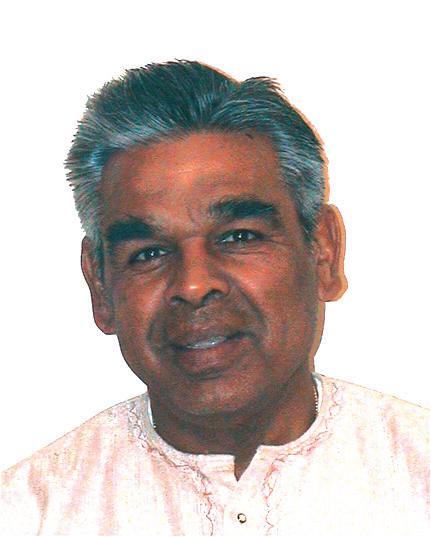
3 minute read
Charity must begin at home
from 2010-07 Sydney (2)
by Indian Link
initiatives around the globe.
BY MALLI IYER
Charity or philanthropy is the act of giving money, goods, time or effort to activities that will uplift the poor and needy. It is aimed at improving the quality of life of those sections of our society who vary from being less privileged to the downright poorest who are deprived of the very basic needs, i.e. food, shelter and a roof over their head. Charitable acts may come from individuals, business corporations or charitable trusts and foundations.
As India’s wealth grows, our social consciousness towards the ‘have-nots’ in our community needs a review. How do we measure up with our contributions towards removing malnutrition, homelessness and providing primary education? We may be championing the cause of the poor by exerting more political pressure on the Government to remedy the situation, without putting adequate thought to obtaining a gigantic contribution from within our society, the vast expanse of Indian diaspora, and dozens of social and religious organisations with tremendous ability to mobilise such funding.
How do we rate by comparison to the wealthy nations? India has a population of 400 million below the poverty line – people who live on less than $1.25 per day. 40 % of our national wealth is with the wealthiest top 5 %. Another statistic worth noting is that 1 % controls 16 % of the national wealth. Our charitable contribution as a percentage of our Gross Domestic Product is however, a mere 0.6 %. Compare this to the global average: USA contributes 2.2 %, U.K. 1.3 % and Canada 1.2 % of their respective GDPs. India has 52 billionaires but only 4 of them are on the Forbes list of top 48 philanthropists. The Indian diaspora are known to have sent over $ 25 billion by way of remittances to India which has made a silent and unspoken contribution to improving the quality of life of their families. How can a country with so much wealth, technical know-how and management talent give so little back to its own people?
Philanthropy is now a global venture with several celebrities putting serious efforts to help the developing nations in Africa and Asia. Ever since Sir Bob Geldof took the initiative to launch the Band-Aid concerts in 1981, singers like Bono, Annie Lennox, Elton John and Madonna have associated themselves with charities like Oxfam, Nelson Mandela’s 46664 Foundation, UN World Food Program and UNICEF. Others like the Bill Clinton Foundation, Jolie-Pitt Foundation, Sunil Mittal’s Bharti Foundation and those run by Scarlett Johansson, George Clooney and Richard Branson have all got
The concepts of daan and dakshina have been known to our culture from the days of our ancient scriptures and our folklore abounds in stories of giving to the poor.
Jamshedji Tata has been known for his philanthropy for over 100 years and the Tata families have continued that tradition of nurturing education, hygiene and health care in several parts of India. The Tata Trusts give 8 to 14 % of their profits to philanthropic activities. With all their newly found wealth, India’s nation building activity is entitled to get a share of their profits from the Ambanis, the Hindujas, the Bajajs, the Birlas, the Godrejs, the Mallyas, the Mittals, Infosys and Aziz Premji Foundations. A number of them have splurged vast sums on IPL auctions for cricket players but with a commensurate increase of their wealth, increased donations to charities is not forthcoming. This may be attributable to the Indian Tax structure not giving them help with appropriate tax deductions.
On the other hand global multi-nationals like Dell and the David and Lucille Packard Foundation have aligned themselves with providing education to underprivileged children. The Bill and Melinda Gates Foundation has given more than $ 1 billion to health and AIDS initiatives in India. It would seem that companies operating in India recognize that the best way for business to grow is by aligning themselves with the nation’s development objectives.
It would be unfair to leave out several religious and voluntary organisations who have made a massive contribution to uplifting the poor, providing health care and education, and encouraging village industries.
These are the Satya Sai Baba Trust, Ramakrishna Mission, Sisters of Charity, Chinmaya Mission, Radhaswami Satsang, Swaminarayan Movement, the Wakf Board for their work in the Muslim community and several Christian charities.
Mention must also be made of a group of women entrepreneurs who have taken significant strides in philanthropic work.
These are Anu Aga, Rohini Nilekani, Roshni Nadar, Kiran Mazumdar Shaw and Nisa Godrej. All these personalities received a meritorious mention as global figures in philanthropy by Forbes magazine. Between them they have managed over $ 100 million for work in the area of rural and village industries, micro finance, disaster relief, health care and environment.
For all intents and purposes, India’s prosperity and wealth generation is assured for several decades due to the rapidly turning wheels of the economic engine, so it is no longer a question of money. Our wealthiest industrialists may be the fastest growing and they may be buying up businesses and taking over large corporations all over the world, but only when they become the most generous givers of their riches, will charity begin at home.








